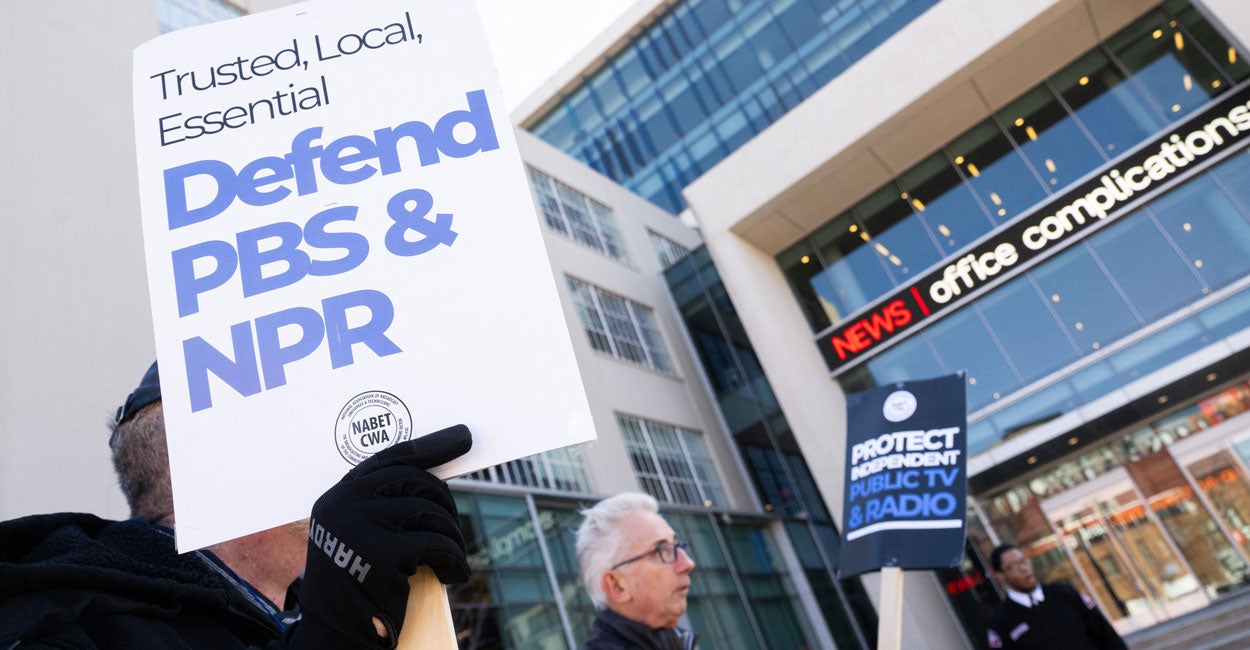WiFi TV, Sirius-XM Radio, and the Case for Rescission of Funding for PBS, NPR

Some of us are old enough to remember B.C.
Live Your Best Retirement
Fun • Funds • Fitness • Freedom
Before Cable, that is.
That was long before flat-panel televisions with HDMI inputs, before broadcasters’ digital sub-channels, and even before VCRs and DVRs. It was also way before Bruce Springsteen’s 1992 song “57 Channels (and Nothin’ On).”
Before cable TV, there were just three over-the-air broadcast television networks—ABC, CBS, and NBC. (For the record, I’m not nearly old enough to remember the long-defunct Dumont Television Network, which preceded ABC, but which went dark way before cable television came along to replace the TV set-top “rabbit-ears” and rooftop antennas.)
But back in 1967, when the TV troika of terrestrial broadcast networks had the market largely to themselves, Congress and President Lyndon B. Johnson’s Great Society perceived a need for a fourth option—what was at the time called “educational television.”
Thus was born the Corporation for Public Broadcasting, which gave rise to the Public Broadcasting System and its sibling, National Public Radio, all of them intended to provide the unwashed masses with what was to be educational and uplifting programming, as a highbrow alternative to the crass commercialism of the broadcast networks.
With that, a chunk of the over-the-airwaves spectrum was set aside for them, and noncommercial, taxpayer-subsidized public broadcasting was born.
Today, however, there are literally thousands of cable- and WiFi-delivered channels of television programming for every imaginable couch potato’s taste (or lack thereof), from the erudite to the erotic.
In like fashion, satellite-delivered Sirius-XM radio offers hundreds of channels featuring every conceivable (and way more than a few inconceivable) genres of music. It offers scores of news, sports, comedy, lifestyles, politics, and special-interest channels.
Just as cable—and now streaming services—have for all practical purposes rendered the need for public television passe, Sirius-XM has rendered NPR’s raison d’être obsolete.
Is there any kind of programming either provides that one can’t find on Sling (or other WiFi-delivered TV services) and Sirius-XM?
In short, technology has passed public broadcasting by—and more specifically, any need there once might have been for it.
But as Ronald Reagan once trenchantly observed, “No government ever voluntarily reduces itself in size. Government programs, once launched, never disappear. Actually, a government bureau is the nearest thing to eternal life we’ll ever see on this earth.”
The CPB, PBS, and NPR are good examples of that.
That’s the context and subtext as President Donald Trump’s $9 billion rescissions package, before the Senate this week, seeks to claw back $1.1 billion in congressionally appropriated funding for PBS, NPR, and CPB for fiscal 2026 and 2027.
But since “government programs, once launched, never disappear,” public broadcasting officials aren’t about to go quietly into that good night—at least not without a fight.
That was clear Monday afternoon from an “urgent news” email from WETA-FM and WETA-TV General Manager Jeff Regen, who sent out an alert to its donors—including me. (I set my alarm-clock radio to WETA-FM to wake up to its classical music, so I feel somewhat obligated to donate during the radio station’s semiannual on-air listener “pledge drives”—if only not to be a freeloader.)
The subject line of Regen’s email read: “URGENT PLEA: Protect WETA from Devastating Funding Cuts.”
That was followed by this headline, complete with uppercase letters and exclamation marks:
“PUBLIC MEDIA IS UNDER THREAT! And there is no time to lose! TAKE ACTION NOW”

(Screenshot)
The alarmist email reads in part:
“If the Senate votes in favor of this rescission, this action threatens to disrupt, delay, and diminish essential public media programs, leaving a significant gap in the fabric of American life. We simply cannot allow this to happen—please contact your Senators now.” …
“While this claw back of previously approved funds does not place WETA in danger of shutting down, many stations across the country will face serious risks due to their greater dependence on federal funding.”
The email goes on to assert:
“Imagine a world without the steady voices from local public media stations delivering reliable, objective (emphasis mine) news, especially during times of crisis. Consider children losing access to educational programming that sparks curiosity and bridges learning gaps, particularly for those without other resources.
“Public media’s mission is fundamentally about serving the public good—providing unbiased (emphasis again mine) journalism, fostering civic engagement, and offering cultural programming that enriches our perspectives.”
“Objective” and “unbiased” are adjectives that should not be used in the same sentence with public broadcasting, as a recent Media Research Center study attests.
The conservative watchdog MRC monitored the newscasts on ABC, CBS, NBC, PBS, CNN, and MSNBC, from Jan. 21 to June 21 for their use of the political pejoratives “far right” and “far left” in their news reporting.
The study, “Media Remain Nearly Blind to the Far Left, Panic Over ‘Far Right,’” released June 26, found that while the Big Three broadcast networks “used no such labels in any of their flagship morning or evening newscasts,” that was where the evenhandedness ended. The MRC analysts found:
- CNN, MSNBC, and PBS … used the terms “far right” (or something similar) 1,222 times and “far left” 86 times.
- Across CNN, MSNBC, and PBS combined, the GOP was deemed “far right” 81 times, while Democrats were called “far left” only once.
“PBS was the most slanted in their application of political epithets. The taxpayer-funded network referenced the ‘far left’ just three times, and the ‘far right’ 127 times—an absurd 42-to-one ratio,” the MRC analysis found.
If, as NPR and PBS stations insist, federal tax dollars represent a relatively small share of their budgets (and that depends on how that’s calculated), the rescinded funds should be relatively easy to replace with advertising dollars.
That is to say, NPR and PBS stations wouldn’t necessarily go off the air if the Senate approves the funding rescission, as their defenders like Protect My Public Media warn. They instead could go commercial and pay their own freight, just as commercial TV and radio stations have done for about 80 and 100 years, respectively.
The congressional legislation that authorized and chartered public TV and radio stations could be amended to authorize them to go commercial and allow them to sell paid advertising to augment (or even replace) their pledge-drive fundraising efforts and “billboards”—those on-air “made possible by” shout-outs to corporate and private sponsors.
The post WiFi TV, Sirius-XM Radio, and the Case for Rescission of Funding for PBS, NPR appeared first on The Daily Signal.
Originally Published at Daily Wire, Daily Signal, or The Blaze
What's Your Reaction?
 Like
0
Like
0
 Dislike
0
Dislike
0
 Love
0
Love
0
 Funny
0
Funny
0
 Angry
0
Angry
0
 Sad
0
Sad
0
 Wow
0
Wow
0











































































